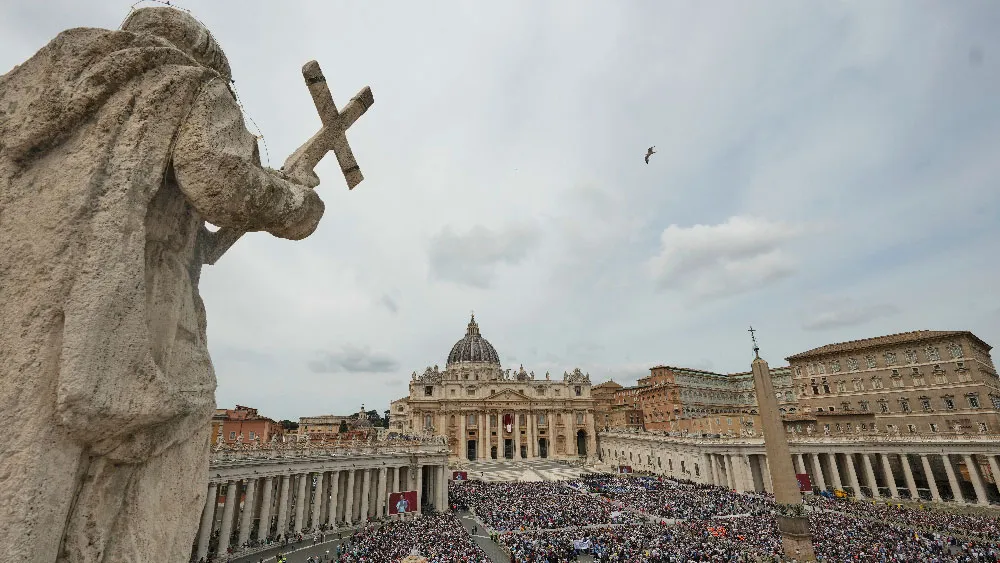October 18, 2011
LGBTs Become Increasingly Visible in Occupy Protests
Peter Cassels READ TIME: 5 MIN.
As the Occupy movement continues to gain momentum across the country, LGBT people have become an increasingly visible presence within it.
Contending they also are victims of today's version of the Gilded Age's robber barons, LGBTs are joining forces with other members of the so-called 99 percent-students, ethnic and racial minorities, people with disabilities, senior citizens and the working and jobless poor and middle class.
Activists attending the dozens of Occupy protests from Boston and New York to San Francisco and Seattle believe they are oppressed and disenfranchised, albeit in ways sometimes different from those of their comrades.
The movement's organizers have welcomed LGBTs with arms wide open. From the outset, the General Assemblies (legislative bodies that set the rules of engagement at each Occupy protest,) have designed "internal solidarity statements" that emphasize inclusivity.
"We are the 99 percent and our task is to unify the 99 percent," reads Occupy Boston's solidarity document. "Unfortunately, we live in a society that is racist, sexist, classist, homophobic and ridden with various other forms of oppression."
LGBTs have been among those caught in the snare of the New York Police Department's response to Occupy Wall Street.
The Huffington Post reported that a transgender person who attended the Oct. 1 protest on the Brooklyn Bridge where the NYPD arrested more than 700 people alleged that officers mistreated him. Gothamist reported that an HIV-positive protester said a police officer punched him in the face during the march through Manhattan's Financial District on Friday, Oct. 14.
A.J. Bockelman, executive director of PROMO, the LGBT advocacy organization in Missouri, was among speakers at an Occupy St. Louis demonstration on Oct. 14.
"As a gay man in America, I see every day the hardship of my community and the out-of-touch nature of our government," Bockelman told protesters. "It is no longer of the people and by the people. It is of the corporate and for the wealthy."
In his speech, a copy of which he provided to EDGE, Bockelman also noted that Missouri's employment non-discrimination law does not include sexual orientation or gender identity and expression.
"We experience unemployment at even greater numbers than the general population," he said.
LGBTs that joined Occupy protests in both Providence and Boston were eager to discuss why they joined the movement.
"I'm here to stand in solidarity with the people who believe government should serve the people," said longtime Rhode Island activist Ken Fish. "It needs to focus far more energy on the 99 percent of the people who are hurting right now compared to the one percent who are living in the lap of luxury. This Occupy protest is the most diverse group of people I have ever seen gathered in one place in Providence. It is just amazing."
Fish also said the LGBT community needs to identify with other people who are oppressed. "If we expect to have the support of other folks on our issues, we need to support them on theirs," he emphasized.
"This is the most significant and militant protest action on the Left in recent memory," added Josh Kilby, a member of the International Socialist Organization's Providence branch. "I believe emphatically that the LGBT community can take a central role in the occupations" he added. "Our demands are working-class demands and have a place in the movement."
Dan Dupuis, a social worker with the Rhode Island public defender's office, said he sees the consequences of government budget cuts the poor economy has caused. "They affect people because there's a resulting lack of services for mental health and addiction," he said.
"I see the Occupy movement as rife with opportunity for gay people as well as other minorities," added Leonard Moorehead. "The forces of the Right demonize unprotected groups such as same-sex marriage advocates. As a gay person, I am blamed, overtly and covertly, for national and global ills, am bereft of legal protections and am an object of violence and legislative malevolence."
Moorehead alluded to the Corvese amendment, which the Rhode Island Legislature attached to a civil-union bill under pressure from anti-gay religious people earlier this year. LGBT activists lobbied for full marriage equality for same-sex couples. And although he enthusiastically supported legalizing nuptials for gays and lesbians, Independent Gov. Lincoln Chafee signed the bill into law.
"The amendment represents the religious desecration of longstanding principles of separation of church and state to the disadvantage of sexual minorities of every stripe," asserted Moorehead.
Trans Activists Help Organize Occupy Protests
Trans activists in Boston and Providence in particular have had a visible presence in organizing the Occupy protests.
"I have been outraged about how corporations, banks and financial institutions have received bailouts and there is little to no job creation," said Gunner Scott, executive director of the Massachusetts Transgender Political Coalition who has been involved with Occupy Boston since the first planning meeting on the Boston Common. "Some of these same institutions do not have inclusive employment practices for LGBT workers."
The country's increasing economic divide has seriously affected trans people, explained Scott.
"Our community members who are dealing with poverty issues often have the least access to social services and financial safety nets," he said. "What little access there is would be severely undermined if social services continue to be cut on a state and federal level."
The MTPC is leading the effort lobbying the Massachusetts Legislature to pass a bill that would add gender identity and expression to the commonwealth's non-discrimination laws.
"There is nothing in place, such as the federal Employment Non-Discrimination Act or the statewide transgender equal rights bill to deter employment discrimination and provide opportunity and access to transgender people to any jobs that might be created," said Scott, noting the irony of the national call for creating new jobs.
Another reason for LGBTs to join the Occupy movement is to build alliances and collaborations with other organizations particularly around economic justice issues, he explained.
In Rhode Island, trans people are among Occupy Providence's volunteer spokespeople who work with the news media.
Partners Samson Hampton and Alexia, who declined to give her last name because she fears repercussions from publicly revealing her gender identity, both said they are students saddled with large loans to pay their tuition. Alexia said Hampton had to leave school for a year because of finances and is "barely squeaking by working three part-time jobs. Alexia said she has not had to leave college, but has to work to pay the bills.
Hampton further pointed out it is always more difficult for trans people to find a job than other lesbian, gay and bisexual people. He considers himself fortunate because two of his jobs are in Rhode Island, which in 2001 added gender identity and expression to its law protecting gays, lesbians and bisexuals from discrimination in employment, housing, credit and public accommodations.
Peter Cassels is a recipient of the National Lesbian and Gay Journalists Association's Excellence in Journalism award. His e-mail address is [email protected].




